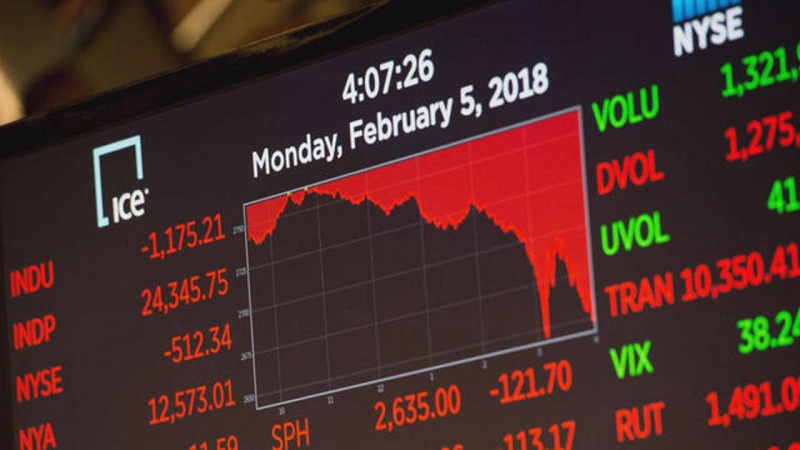Cracking the Code on Factors Affecting Stock Market Forecast
Ever wondered what moves the market needle? Here it is: Trading isn’t just guesswork; it’s an art seasoned with science—powered by key factors that lift or sink those hard-earned stocks. I’ll let you in on a secret: your pocket’s future links directly to the pulse of economic signals, the sharp turns of monetary policies, the health of big corporates, and even winds of change from across the globe. Hold tight, as I break down these titans of influence and sharpen your forecasts beyond the crowd’s chatter. Get ready to be that savvy investor who sees the wave before it breaks. Let’s dive deep into the crystal ball of Wall Street and unpack the factors affecting stock market forecast like never before.
Economic Indicators and Stock Market Analysis
Understanding the Correlation between Economic Indicators and Market Trends
Let’s chat about how things like jobs or prices can make stocks go up or down. When folks have jobs, they spend money. This makes businesses do well. When prices for things jump too high, people can’t buy much. Businesses can suffer then. This is how what happens in the economy can push stocks around.
Evaluating the Current Economic Data Landscape for Investment Decisions
Much rests on the latest data when you think about where to put your money. New info comes out all the time. You’ve got to keep your eyes peeled for stuff like how many things people buy or if factories are busy. Even what it costs to borrow money. All that stuff paints a picture that can guide you on what to expect for stocks.

The Impacts of Monetary Policies on Equities
Deciphering Interest Rate Fluctuations and Equity Performance
When rates rise, borrowing costs go up. Stocks usually fall. Firms pay more to get loans. They may slow down in making new things or hiring. This can cut their profits. Lower profits can make the stock price drop. People worry and sell stocks. But sometimes, stocks can still go up even when rates rise. This happens if investors think the economy is strong. They believe companies will still make money.
Now, let’s dive in. Interest rates are like a big red stop sign for money flow. Think of it this way: When you have to pay more to borrow money, you might think twice about buying that new bike. Companies are the same. They borrow a lot to grow. When it costs more, they may say, “Let’s wait a bit.” If they slow down, they may not make as much money. And for us, investors, that’s not great news. We like it when companies we invest in do well. So, if interest rates keep going up, we need to watch out. It could mean our stock earnings might take a hit.
Central Bank Policies and Their Direct Impact on Stock Valuation
A central bank’s job is to keep the economy stable. They decide on rates and rules for money. Like referees in a game, they call the shots. When they change the rules, it affects us, the players. Stocks can go up or down, fast or slow, because of these changes. It’s like the central bank has a remote control for the stock market. With a press of a button, they can make stocks move.
Let’s talk about how it works. Imagine the central bank pulls out a “sale” sign. They lower rates. Now, companies can borrow money for less. They can spend more on growing and hiring. They could make bigger profits. Investors see this and think, “This is awesome!” They buy more stocks. The prices of stocks jump up.
But change the channel, and it’s not always a happy show. If the central bank thinks things are too heated, they might increase rates. This makes it hard for companies to get loans. They might have to cut back or charge us more for things. That can make people uneasy. They might sell their stocks. Then prices can tumble down.
In the big picture, central bank policies guide money’s path. When it’s cheap to borrow, stocks might bloom like spring flowers. But when it’s costly, stocks might wither like plants in a dry summer. We have to keep our eyes on these policies. They tell us which way the wind is blowing for our stocks. And that’s how we make smart choices on what to buy, hold, or sell.

Corporate Health and Investor Psychology
Analyzing Corporate Earnings and Their Market Influence
Corporate earnings tell us a lot. They show if a company is making money. If earnings are up, it usually means the company is doing well. This can make the stock price go up. People feel good about the company. They want to buy its stocks. This is called corporate earnings influence. Good earnings reports can also make people trust more in the stock market in general. They can even boost the entire sector’s stocks.
But not all earnings reports are happy news. If a company says it’s not making as much money, that can scare investors. It can make stock prices drop. This is how the corporate earnings influence the stock market.
We also look at the earnings reports schedule. It’s a calendar that tells us when companies will share their earnings. Before these dates, people guess what the reports will say. This guessing can make the stock price move up or down.
Measuring Investor Sentiment and Its Significance in Stock Predictions
Investor sentiment is like the mood of the stock market. It shows how people feel about stocks. Are they scared or happy? To measure this, we do things like surveys. One popular measure is the consumer confidence index. It asks people how they feel about the economy. If they are confident, they might spend money. This can be good for stocks.
Investor sentiment measure is important. It helps us guess where the stock market will go. If people are scared, they sell stocks. This can make prices fall. But, if people feel good, they buy stocks. Then, prices might go up. Knowing the mood helps us make smart choices about stocks.
Political events affecting markets can change the mood fast. For example, if a country has an election, and the new leader is good for business, stocks might go up.
Market volatility factors include a lot. They are things that make stock prices move up and down a lot. Interest rate impact on equities is a big one. If rates go up, borrowing money costs more. This can make it harder for companies to grow. It can also affect how much money they make.
Financial sector performance is a sign of how banks and money companies are doing. If they do well, it can mean good things for the stock market. But if they’re not doing well, it might be a warning.
In the end, understanding both corporate earnings and investor sentiment is key. They help us see where the stock market might be going. We use this info to make better choices when we buy or sell stocks. It’s not always easy, but by keeping an eye on these things, we can try to be one step ahead.

Global Forces Shaping Market Expectations
Geopolitical Risks and Their Effects on International Stock Markets
Wars, trade deals, and elections shake world stocks. News on these issues can scare or excite investors. When investors worry, they often sell. This can drop stock prices fast. On the other hand, good news can make stocks soar.
Imagine two countries starting a trade war. Their stocks may fall because trading gets harder. Investors then look for safer places to put their money. They might buy stocks in countries not in the trade war. This is why keeping an eye on world news is wise for stock market predictions.
Let’s say a new leader gets elected in a country. They might change how companies do business. If companies might make more money, stock prices often rise. But if new rules make earning money harder, stock prices may drop. So, knowing political events can help us guess where stocks are going.
Technological Advancements in Trading and Their Impact on Market Dynamics
Technology changes how we buy and sell stocks. New tools let traders act fast. They can buy or sell in just fractions of a second. This can make stock prices change very quickly.
Computer programs, called algorithms, now do lots of stock trading. They can look at lots of data in no time at all and decide to buy or sell stocks. If lots of algorithms try to sell at once, it can lead to what we call market volatility. This means stock prices are moving up and down a lot.
Some tech lets regular folks invest easily too. With apps on phones, buying stocks is now at everyone’s fingertips. More people in the stock market can mean more money moving in and out of stocks. This can also add to market volatility.
Here’s something else: digital money, called cryptocurrencies, are new rivals to regular stocks. If many people buy digital money, less might go into stocks. So tech advances can shake up the whole stock market.
Understanding tech’s role in trading is super important. It helps us see trends and make better guesses about where stocks will head. Always remember, new tech can change the stock game overnight. So, staying updated on tech news is key for smart stock market analysis.
In the stock world, knowing what’s happening around the globe matters a lot. It’s like being a weatherman, but for money. We look at all sorts of signs to guess what will come next. Geopolitical news and tech changes are two of the big signs. By watching them, we try to stay ahead in the stock market game.
In this post, we’ve covered how economic signs guide stock market trends. You’ve seen how central bank moves and interest rates can push stock prices up or down. We broke down why company earnings and what investors think matter a lot. Lastly, we looked at how the world’s issues and tech changes can shake markets.
My final take: to make smart stock choices, you need to watch these clues closely. They tell us where the market might go. Keep an eye on the economy, what the banks do, and how people feel. Don’t forget to factor in the world’s big problems and tech leaps. This can help you make better guesses about which stocks will rise or fall. Stay sharp and good luck!
Q&A :
What are the major factors that can affect the accuracy of stock market forecasts?
Understanding the key elements that impact stock market predictions is crucial for investors. Market forecasts can be influenced by a variety of factors, such as economic indicators (GDP, employment rates, inflation), interest rates, and political events. Additionally, natural disasters or global incidents may also cause significant market fluctuations. It’s vital that any forecasting model considers these variables to improve the precision of its predictions.
How do geopolitical events influence stock market projections?
Global politics play a significant role in shaping investor sentiment and consequently, the stock market trajectory. Geopolitical events such as elections, trade agreements, or conflicts can lead to volatility and necessitate adjustments in market forecasts. These events can affect policies that alter trade dynamics, currency values, and international investment flows, making them a crucial component in any forecasting analysis for the stock market.
Can technological advancements impact stock market forecasting?
Absolutely. Advancements in technology, particularly in the realm of data analytics and machine learning, have revolutionized the way stock market forecasts are made. The improved ability to process large datasets and identify patterns can lead to more accurate predictions. Moreover, the introduction of new technologies can disrupt industries and create new market leaders, which must be factored into any forecasting models.
In what ways do company earnings reports shape stock market forecast models?
Company earnings reports provide a snapshot of a company’s financial health and future prospects, which can significantly impact its stock price. These reports can either confirm or challenge the prevailing market sentiment and expectations. Forecast models must integrate this information as it reflects a company’s performance and can impact investor behavior, thus influencing overall market direction.
How significant is investor sentiment in influencing stock market forecasts?
Investor sentiment is a critical component of stock market dynamics. Optimism or pessimism among investors can drive market trends and lead to self-fulfilling prophecies, where positive sentiment can push prices higher, while negative sentiment can lead to sell-offs. Forecast models need to consider the psychological factors at play to capture the potential swings in market trends driven by investor sentiment.




